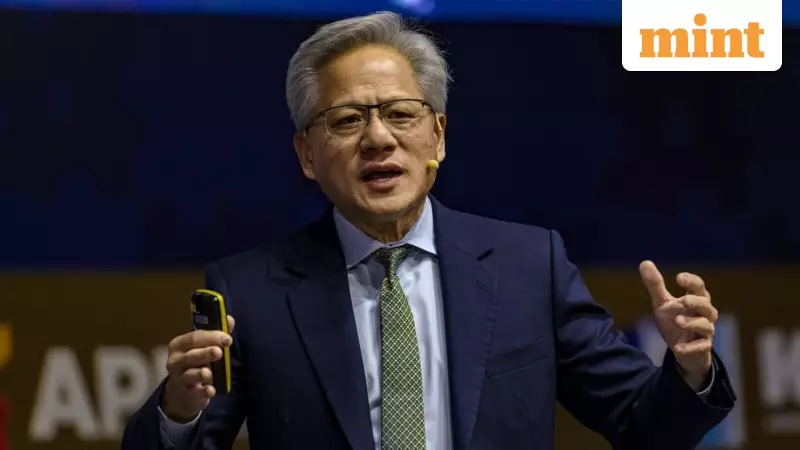
Nvidia's Critical Moment in AI Revolution
The technology world holds its breath as Nvidia prepares to release its quarterly earnings report next week. The chipmaker's performance could determine whether the artificial intelligence stock rally that began in 2023 regains momentum or continues to fade.
Nvidia's earnings report in spring 2023, coming months after OpenAI launched ChatGPT, marked a turning point for both the company and market awareness of AI's transformative potential. The company's revenue forecast, which nearly doubled Wall Street estimates, demonstrated that the race to develop artificial intelligence had officially begun.
Market Skepticism Reaches Peak Levels
Currently, skepticism about the AI trade stands at its highest point since before Nvidia's groundbreaking 2023 forecast. Investors are questioning the returns from billions of dollars tech companies have spent staking claims in the AI landscape. Concerns are growing about when these massive investments will meaningfully boost profitability.
The effects are visible across technology stocks. Meta Platforms has fallen nearly 20% since reporting mixed third-quarter earnings on October 28. The company announced significant increases in AI spending and pledged to raise investment "notably" over the coming year.
An index tracking the so-called Magnificent Seven tech companies has declined approximately 5.8% since Meta's update. Nvidia itself has dropped more than 8.1%. Meanwhile, the S&P 500 is heading toward one of its worst November performances since 2008.
Nvidia's Unique Position in AI Ecosystem
Nvidia occupies a distinctive position in the AI investment boom compared to companies offering AI services or building infrastructure. The company's revenue model faces no serious questions, it maintains a double-A credit rating (the second highest possible), and it's expected to generate more than $70 billion in net income this year alone.
CEO Jensen Huang has indicated that Nvidia could sell around $500 billion worth of its Blackwell chips, plus a soon-to-launch version called Rubin, by the end of next year. While supply constraints make this target challenging, it suggests Huang remains unconcerned about demand.
"I think we're probably the first technology company in history to have visibility into half a trillion dollars of cumulative Blackwell and early ramps of Rubin through 2026," Huang stated during a Nvidia tech event in Washington, D.C., last month.
However, Huang may need to present an even more optimistic outlook to boost Nvidia stock and restore confidence in the AI trade. Investors worry that the White House might restrict Nvidia from selling its next-generation chips in China. Additional concerns include potential slowing demand growth if major hyperscaler customers scale back data-center capacity plans or choose cheaper alternatives from competitors like Advanced Micro Devices.
Options traders are pricing in an after-earnings swing of approximately 6.2% in either direction for Nvidia stock—the largest forecast move in over a year.
Analysts Divided on Market Impact
Wedbush analyst Dan Ives maintains confidence that Nvidia's outlook can calm market nerves and quiet discussions about an "AI bubble."
"Nvidia's earnings next week will be another major validation moment for the AI Revolution and a positive catalyst for tech stocks into year-end as investors continue to underestimate the scale and scope of AI spend," Ives noted in a recent research report.
Gene Munster, managing partner at Deepwater Asset Management, offers a more cautious perspective. While bullish on Nvidia stock and the AI revolution generally, he questions whether investors will find reassurance.
"The cross currents around next week's earnings set up a Catch-22 for the AI complex," Munster explained in an earnings preview. "Stronger guidance can amplify worries about overspending, while a modest raise can be read as the first sign that growth is normalizing faster than expected."
He added that "it's a coin toss as to how investors will react to favorable guidance," suggesting investors might need better odds to drive tech stocks and the broader market higher as the year concludes.
Bank of America analyst Vivek Arya summarized the challenge: "Nvidia is facing the tough task of meeting both high earnings expectations and high skepticism around AI capex, likely only resolved when broader market volatility subsides."
The technology investment community now watches closely as Nvidia approaches what could become another defining moment in the artificial intelligence investment story that has captivated global markets for nearly three years.





